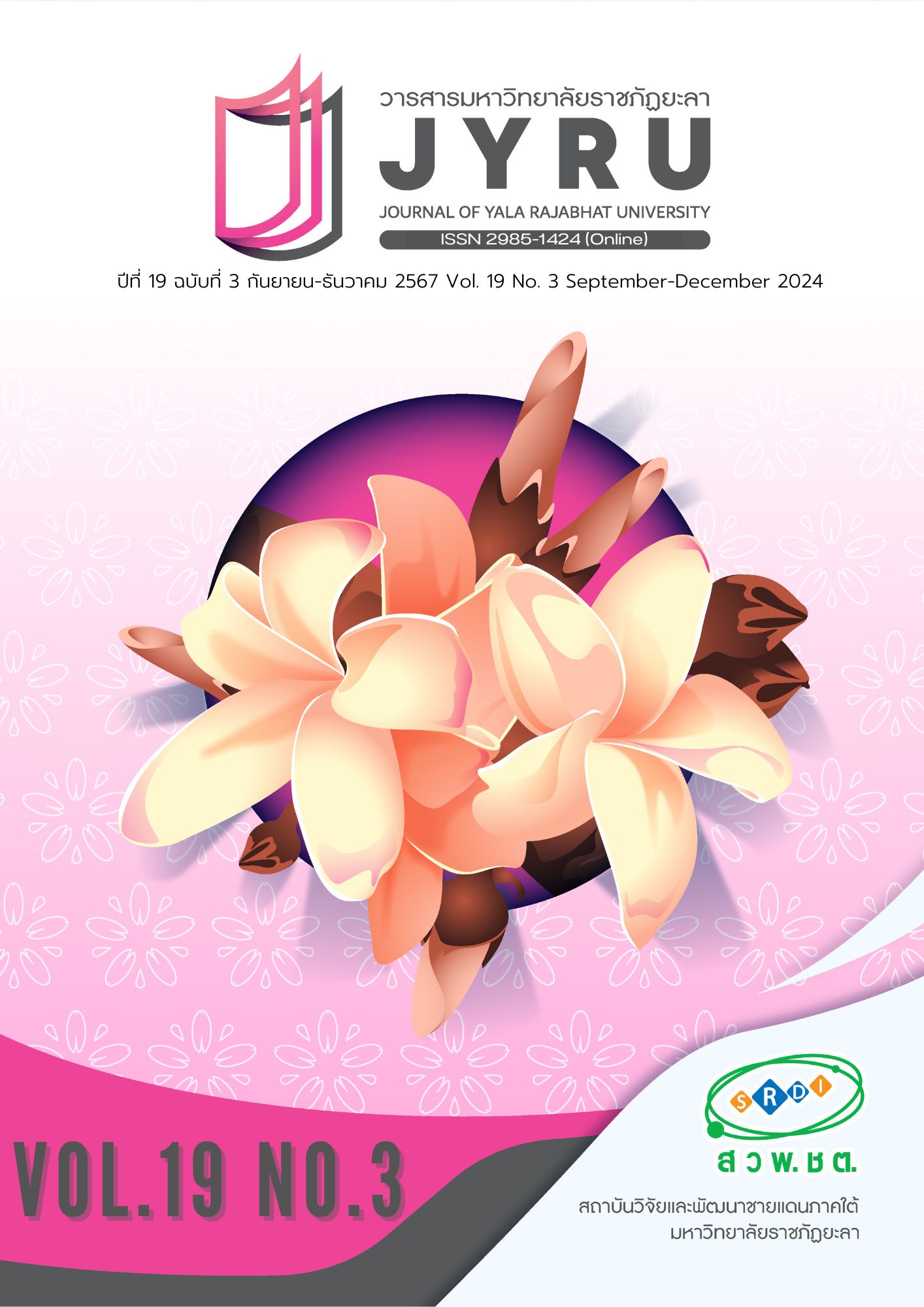Group Communication and Teamwork Factors: An Observational Study Using the “Pandemic” Cooperative Board Game
Main Article Content
บทคัดย่อ
This study aims to examine how group communication and teamwork can be enhanced through cooperative board game play. The researcher observed three groups, each with four players, as they worked together to win the Pandemic board game. The results were analyzed based on relevant principles and theories. Despite adopting different playing styles, the study showed that all three groups were able to win the game and engaged in communication that enhanced task management, such as brainstorming and decision-making, and supplementary communication-such as creating a fun and relaxed atmosphere. The research then analyzed the success of teamwork and found that different group communication influenced on learning factor and goal-achievement factor, which contributed to the development of teamwork during board game play. This research contributes to understanding how cooperative board games can promote teamwork in organizations. It also highlights potential strategies for enhancing teamwork practices and group communication in small-team settings.
Article Details

อนุญาตภายใต้เงื่อนไข Creative Commons Attribution-NonCommercial-NoDerivatives 4.0 International License.
บทความ ข้อมูล เนื้อหา รูปภาพ ฯลฯ ที่ได้รับการเผยแพร่ในวารสารมหาวิทยาลัยราชภัฏยะลานี้ ถือเป็นลิขสิทธิ์ของวารสารมหาวิทยาลัยราชภัฏยะลา หากบุคคลหรือหน่วยงานใดต้องการนำทั้งหมดหรือส่วนหนึ่งส่วนใดไปเผยแพร่ต่อหรือกระทำการใดๆ จะต้องได้รับอนุญาตเป็นลายลักษณ์อักษรจากวารสารมหาวิทยาลัยราชภัฏยะลาก่อนเท่านั้น
เอกสารอ้างอิง
Ahmed, N. M. A., Naqi, N. S. M. A. & Cheema, N. S. M. (2023). Leadership styles and their influence on project team performance. Sir Syed Journal of Education & Social Research, 6(2), 153–159.
Ambrose, S. A., Bridges, M. W., DiPietro, M., Lovett, M. C. & Norman, M. K. (2010). How learning works: Seven research-based principles for smart teaching. Jossey-Bass.
Anania, E. C., Keebler, J. R., Anglin, K. M. & Kring, J. P. (2016). Using the cooperative board game pandemic to study teamwork. Proceedings of the Human Factors and Ergonomics Society Annual Meeting, 60(1), 1770-1774.
Bayeck, R. Y. (2020). Examining board gameplay and learning: A multidisciplinary review of recent research. Simulation & Gaming, 51(4), 411–431.
Bonwell, C. C. & Eison, J. A. (1991). Active learning: Creating excitement in the classroom. ASHE-ERIC, Higher Education Report no. 1. Washington, DC: George Washington University.
Ervin, J., Bonito, J. & Keyton, J. (2017). Convergence of intrapersonal and inter- personal processes across group meetings. Communication Monographs, 84(2), 200–220.
Fazel, P. (2013). Learning theories within coaching process. World academy of science, engineering and technology. International Journal of Social, Behavioral, Educational, Economic, Business and Industrial Engineering, 7(8), 2343–2349.
Gouran, D. S. & Hirokawa, R. Y. (1983). The role of communication in decision-making groups: A functional perspective. In M. S. Mander (Ed.), Communications in transition (pp. 168–185). New York: Praeger.
Han, J., Yoon, J., Choi, W. & Hong, G. (2021). The effects of shared leadership on team performance. Leadership & Organization Development Journal, 42(4), 593–605.
Khazaal, Y., Chatton, A., Prezzemolo, R., Zebouni, F., Edel, Y., Jacquet, J., et al. (2013). Impact of a board-game approach on current smokers: a randomized controlled trial. Substance Abuse Treatment Prevention and Policy, 8(1), 1-14.
Kiknadze, N. C. & Leary, M. R. (2021). Comfort zone orientation: Individual differences in the motivation to move beyond one’s comfort zone. Personality and Individual Differences, 2021(181), 111024.
Kongeseri, S. & Coley, C. (2019). Design of a collaborative tabletop game for civic engagement: Serious games in rural India. The 11th International Conference on Videogame Sciences and Arts, November 27-29, 2019. Aveiro: Springer.
Liu, J., Sun, G. & Wu, D. (2024). Heuristic Intervention for Algorithmic Literacy: From the perspective of Algorithmic awareness and knowledge. The 19th International Conference, iConference 2024. Wisdom, Well-Being, Win-Win. April 15-16, 2024. Changchun: Springer.
Locke, E. A. & Latham, G. P. (1990). A Theory of Goal Setting and Task Performance. Michigan: Prentice-Hall.
Mbokota, D. G., Myres, P. K. & Stout-Rostron, D. S. (2022). Exploring the process of transformative learning in executive coaching. Advances in Developing Human Resources, 24(2), 117-141.
Mehmood, M. S., Jian, Z., Akram, U., Akram, Z. & Tanveer, Y. (2021). Entrepreneurial leadership and team creativity: the roles of team psychological safety and knowledge sharing. Personnel Review, 51(9), 2404–2425.
Noda, S., Shirotsuki, K., & Nakao, M. (2019). The effectiveness of intervention with board games: a systematic review. BioPsychoSocial Medicine, 13(1).
Poole, M. S., Dobosh, M. & Keyton, J. (2021). The Emerald Handbook of Group and Team Communication Research. Leeds: Emerald Publishing Limited.
Savage, B. M., Lujan, H. L., Thipparthi, R. R. & DiCarlo, S. E. (2017). Humor, laughter, learning, and health! A brief review. Advances in Physiology Education. 41(3), 341–347.
Uwayo, F. & Fadoju, A. & Ibrahim, W. F. (2021). Players' participation motives as key to team success and achievements in Rwanda Handball league. IOSR Journal of Sports and Physical Education, 8(3). 5-12.


